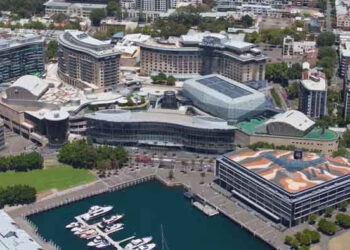Just days after Caesars Entertainment voluntarily went to a US Bankruptcy Court in Chicago to restructure its largest and most indebted operating company, ostensibly safe from its many creditors, a US District Court judge in Manhattan has dealt the elaborate plan a potentially fatal blow.
Judge Shira Scheindlin rejected a motion by Caesars Entertainment Operating Co., the unit saddled with more than US$18 billion of the corporation’s $25 billion of debt, to dismiss a suit by second-tier lenders who claim Las Vegas-based parent Caesars Entertainment plundered the company by shifting assets into newly formed subsidiaries and refinancing debt as part of a scheme to place its best-performing properties out of their reach.
The judge said their allegations concerning the transfer of valuable properties away from CEOC in August, along with the removal by Caesars Entertainment of certain guarantees to creditors, amount to a violation of the federal Trust Indenture Act of 1939.
The judge decided the company’s alleged elimination of the guarantees was “an impermissible out-of-court restructuring” that is “exactly” what a provision of the 1939 law “is designed to prevent,” according to her ruling.
In 2008, Caesars, the largest casino operator in the United States, took on $30 billion of debt on the eve of the global financial crisis and the recession that followed to finance a leveraged buyout by private-equity giants Apollo Global Management and TPG Capital Management. With most of its 50 casinos located in slumping, post-recession US regional markets, the company has never been able to generate enough cash from operations to service the debt.
With a court-supervised reorganization looking increasingly inevitable, management subsequently broke the company up into a publicly traded holding entity called Caesars Entertainment (Nasdaq: CZR) with stakes in three subsidiaries, one of them spun off under a second publicly traded company known as Caesars Acquisition (Nasdaq: CACQ) and controlled by Apollo and TPG. All but one of CZR’s Las Vegas Strip casinos, together with the newest and/or best performing regional casinos, plus the company’s lucrative online business and the World Series of Poker brand, were shunted into CACQ and the subsidiary known as Caesars Entertainment Resort Properties. The effect was to create a “good Caesars” with profitable businesses and relatively little debt, or so lower-ranking creditors claim, and a “bad Caesars” in the form of CEOC, which Apollo and TPG placed in Bankruptcy Court last Thursday as part of a pre-packaged agreement with a majority of first-tier creditors. The agreement calls for these creditors to recover most of their investments under a plan that will see CEOC refinanced and reorganized into a real estate investment trust that will lease its casinos to a separate operating company, both of which the lenders will largely own in return for cash payments and a reduction of their claims.
Junior creditors left out of this deal have challenged the asset transfers ever since negotiations with senior lenders began in earnest last summer. Lawsuits and counter-suits have been flying. The junior lenders’ demands—joined in some cases by senior creditors—include calls for management to be ousted and for the company to be declared in default and its assets placed in receivership.
Last Monday, several of them beat CZR to the punch by filing an involuntary petition for reorganization in US Bankruptcy Court in Delaware, three days before the voluntary pre-packaged filing on behalf of CEOC in Chicago.
Except for permission to allow CEOC to pay necessary bills, pay its employees and operate more or less as usual, the two bankruptcies are effectively frozen until the Delaware judge decides which of the two courts will preside over the reorganization.
While that ruling is pending, Judge Scheindlin in New York said she was free to issue her opinion regarding the non-bankrupt parent company. She described the complaint before her as alleging that Caesars’ “ultimate plan” was to put the main unit “into bankruptcy while protecting [Apollo] and [TPG] from CEOC’s creditors”.






























